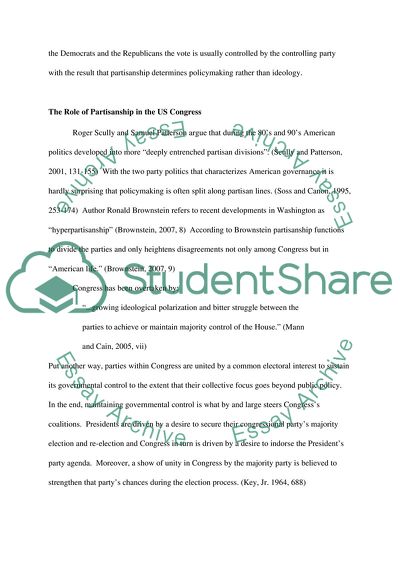Cite this document
(“The partisan battle in policymaking within the U.S Congress Essay”, n.d.)
Retrieved from https://studentshare.org/miscellaneous/1545024-the-partisan-battle-in-policymaking-within-the-us-congress
Retrieved from https://studentshare.org/miscellaneous/1545024-the-partisan-battle-in-policymaking-within-the-us-congress
(The Partisan Battle in Policymaking Within the U.S Congress Essay)
https://studentshare.org/miscellaneous/1545024-the-partisan-battle-in-policymaking-within-the-us-congress.
https://studentshare.org/miscellaneous/1545024-the-partisan-battle-in-policymaking-within-the-us-congress.
“The Partisan Battle in Policymaking Within the U.S Congress Essay”, n.d. https://studentshare.org/miscellaneous/1545024-the-partisan-battle-in-policymaking-within-the-us-congress.


